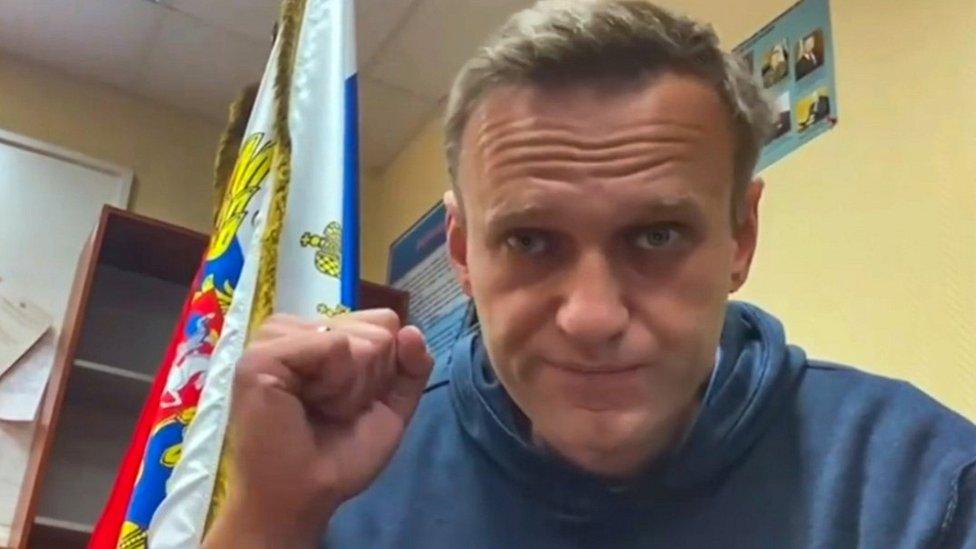Nord Stream 2: Why Germany may pull plug on Russian pipeline
- Published
Gas wars: The problem with Nord Stream 2
It was one short sentence in a German Sunday newspaper. But for the Nord Stream 2 gas pipeline, it was potentially as damaging as an earthquake.
"I hope the Russians don't force us to change our position on Nord Stream 2," German Foreign Minister Heiko Maas said, as the row with Moscow intensified over the poisoning of Kremlin critic Alexei Navalny.
The pipeline has always been controversial. It brings Russian gas directly to Germany under the Baltic Sea, with the aim of providing the country with affordable energy as it phases out nuclear and coal. But critics argue it makes German too reliable on energy from a politically unreliable partner.
The foreign minister called on Moscow to fully investigate the nerve agent attack on Mr Navalny, who is being treated in a hospital in Berlin. Otherwise, he implied, axing Nord Stream 2 was now an option.
How Merkel's view hardened
Just a few hours before German doctors announced that Mr Navalny was coming out of his coma, Chancellor Angela Merkel indicated she was also prepared to reconsider her support for the pipeline.
"The German chancellor agrees with the foreign minister's comments from the weekend," said Angela Merkel's spokesman on Monday.
Until this week the German government's official line was that the pipeline should be seen as a separate issue from the poisoning of Russia's most prominent opposition leader.
But these latest comments mark a sudden hardening of attitudes towards Nord Stream 2 in Berlin. For the first time since building began almost a decade ago, the future of the pipeline looks threatened.
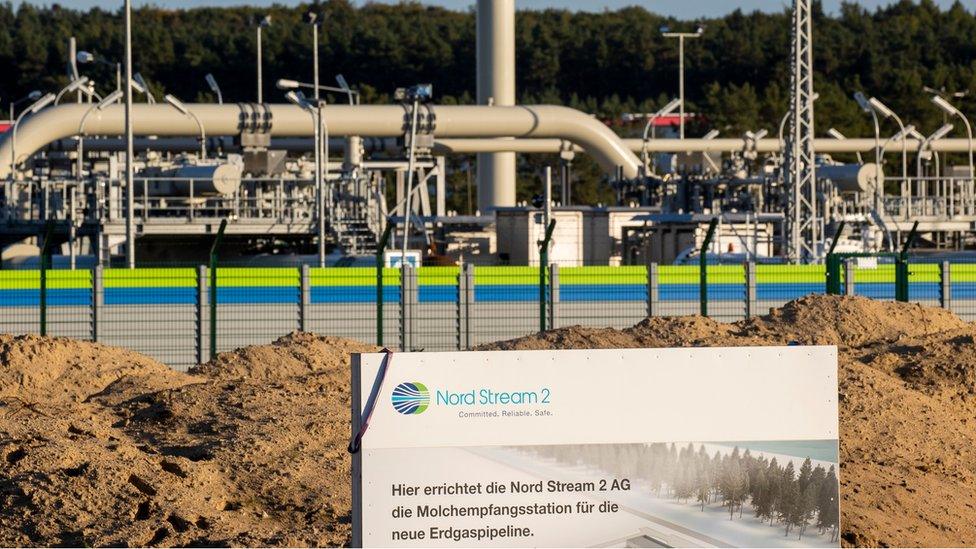
The undersea pipeline will allow Russia to increase gas exports to Germany
The first pipeline, Nord Stream 1, was completed in 2011. This second is almost finished and is due to go online in 2021: 2,300km (1,430 miles) of the entire 2,460km stretch have already been laid.
Russia's links with German ex-leader
Not that Mrs Merkel and her conservative party were necessarily enthusiastic cheerleaders of the pipeline. She inherited it from her predecessor, the centre-left ex-Chancellor Gerhard Schröder.
Mr Schröder enjoys a backslapping bromance with Russian President Vladimir Putin, who he famously described as a "democrat through and through". And after leaving office, he sparked outrage in Germany when he took up a number of lucrative posts in Russian energy companies, including on Nord Stream's supervisory board.
Mr Schröder is often accused of being a Putin propagandist. Usually, he is an energetic voice on Russian-German relations and a vigorous defender of the pipeline. But over the last few days he has gone noticeably quiet.
Could it be stopped?
Chancellor Merkel's government is facing growing criticism from European partners, who say the pipeline makes Germany too dependent on gas from a politically unreliable country. The US is a particularly vociferous opponent, and is threatening sanctions against European companies involved in the project.
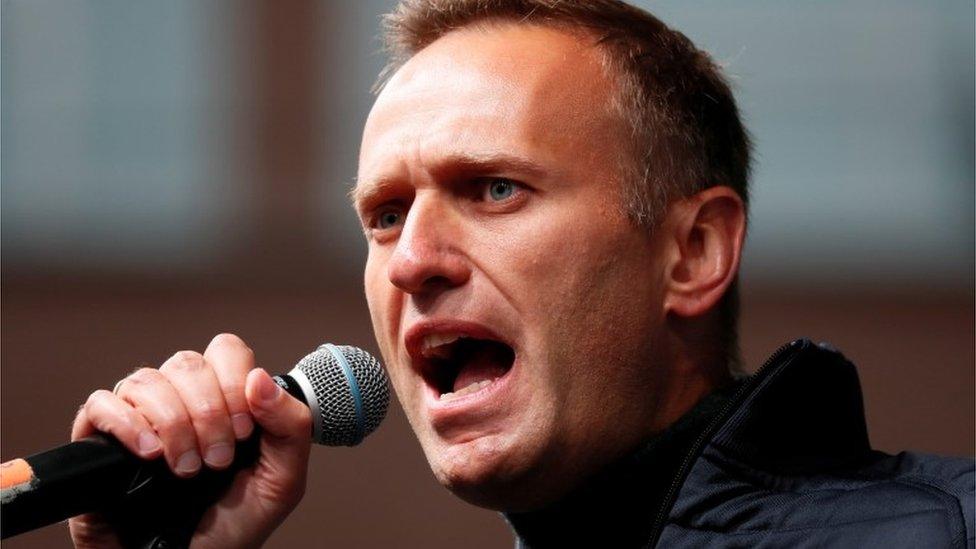
The poisoning of Kremlin critic Alexei Navalny has cast doubt over the pipeline's future
Now, the Navalny poisoning has unleashed a ferocious debate about the future of Nord Stream 2 in Germany. There are calls for the pipeline to be scrapped from some high-ranking conservative and Green Party politicians.
But given that it is almost completed, and that around €8bn (£7.2bn; $9.4bn) has already been invested in the project, can it even be stopped?
Supporters say that pulling the plug would damage Europe's reputation as a stable place for investment and would push up prices for consumers. They also say axing the pipeline would still leave the problem of where Germany can get its energy.
Ironically, one reason that many Germans support the pipeline is because its greatest critic is US President Donald Trump. He is disliked in Germany and his rants against the pipeline only serve to boost its popularity.
Many voters suspect he wants it scrapped in order to sell American fuel to Germany instead. Mrs Merkel has to avoid the impression that she is giving in to pressure from Mr Trump.
Either way, if Germany were to be responsible for Nord Stream's failure, Berlin could be liable for huge damages.
Which is why American and European opposition to Nord Stream could suddenly become quite useful for the Merkel government. Until now, Berlin has fought US and European efforts to scupper the project with sanctions or EU regulations.
If Angela Merkel does decide to abandon the project, the cheapest tactic for Germany may be to simply quietly withdraw her support, let the pipeline's American and EU critics kill the project, and possibly even pay the bill.
- Published21 December 2019
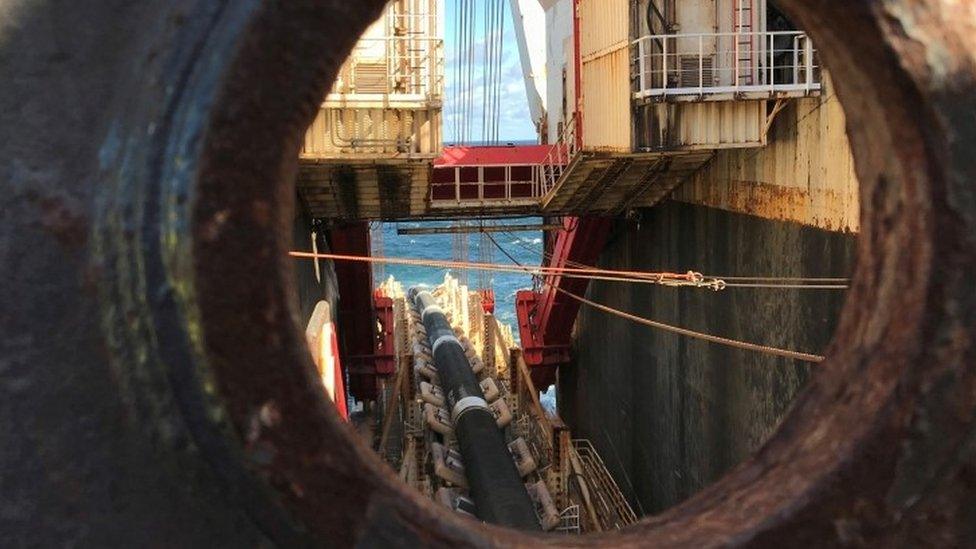
- Published21 December 2019

- Published31 October 2019
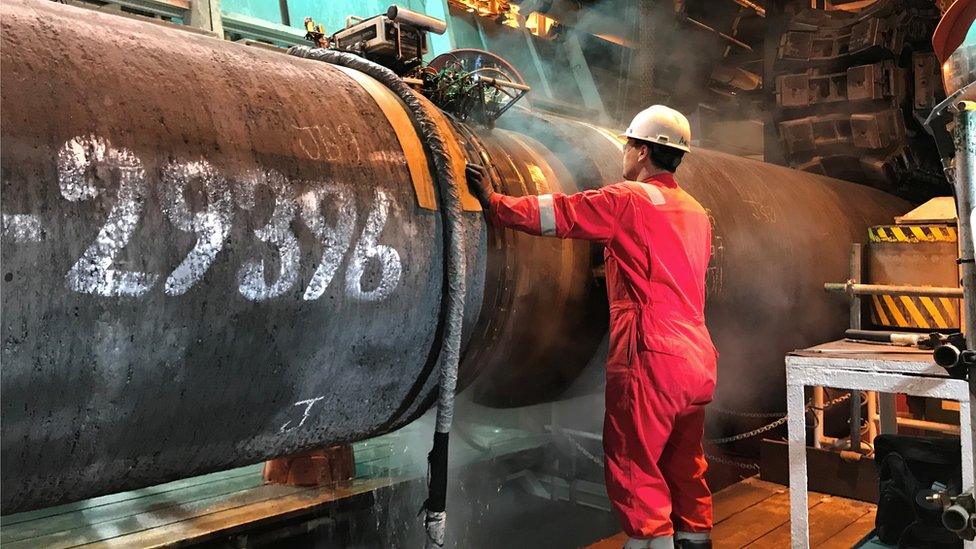
- Published7 September 2020
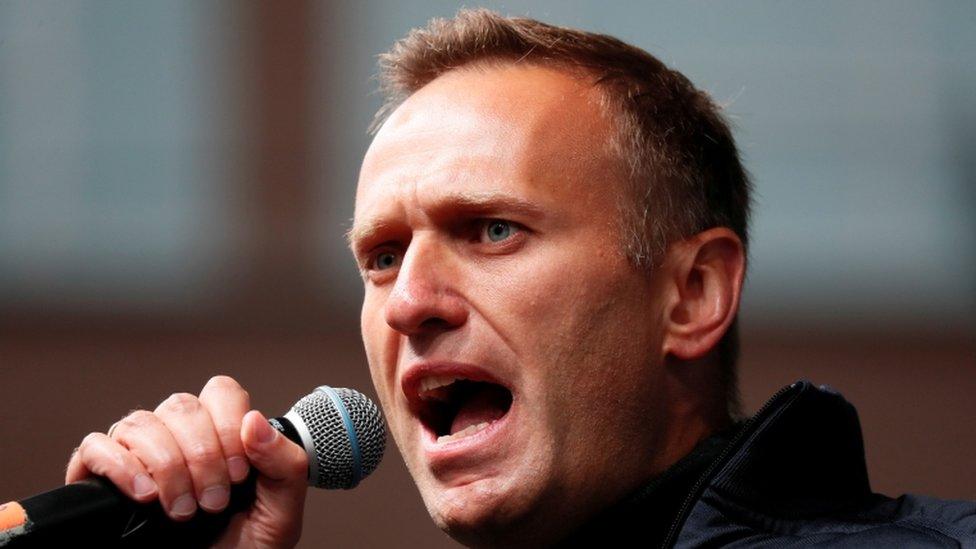
- Published2 September 2020
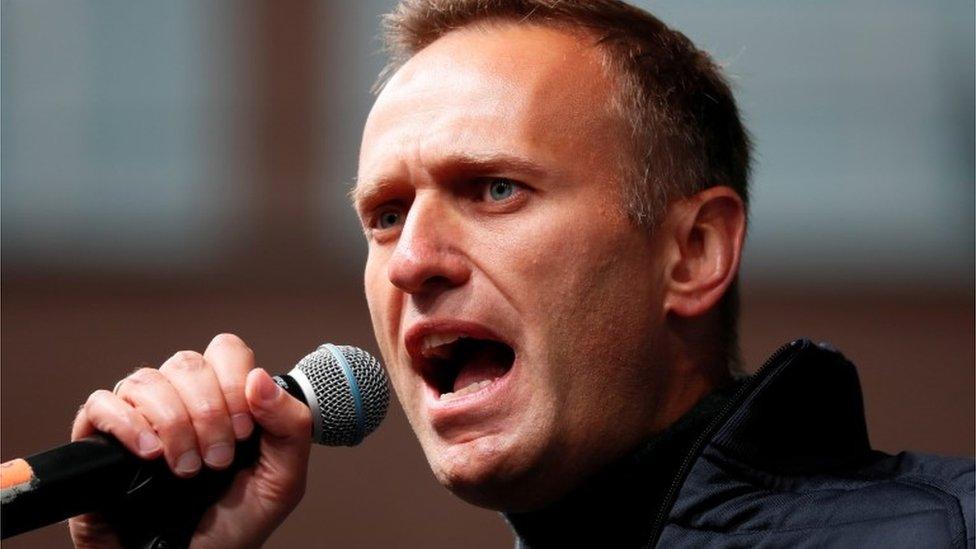
- Published16 February 2024
